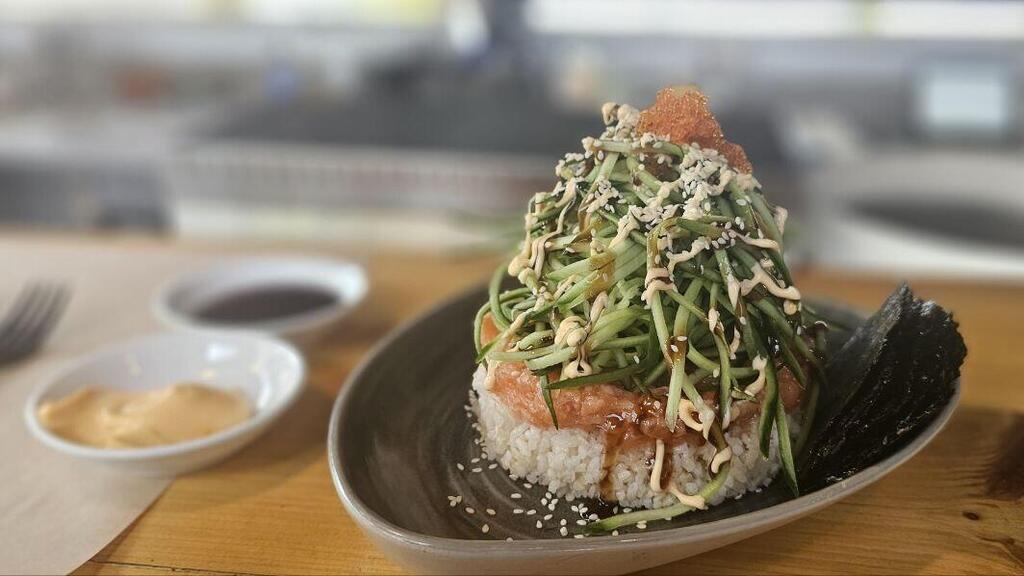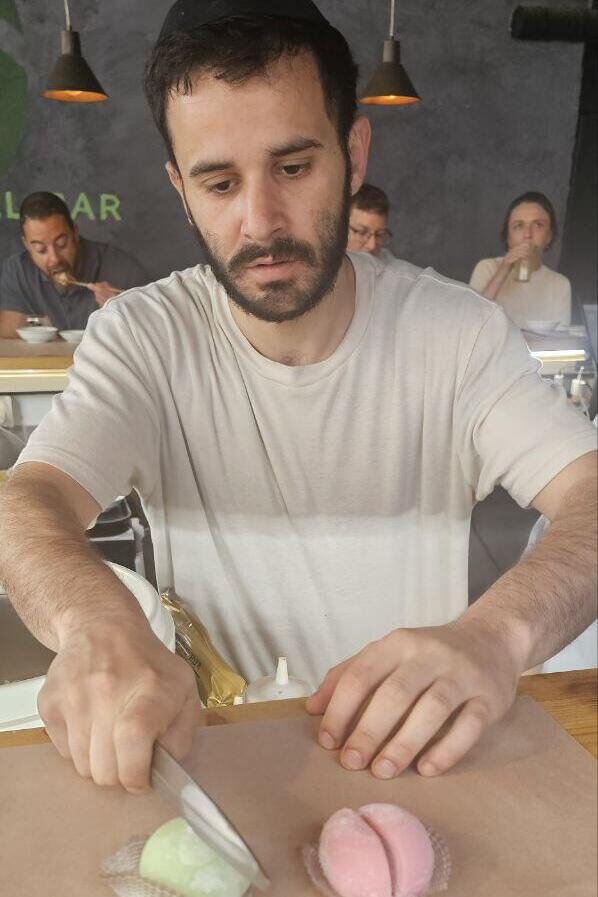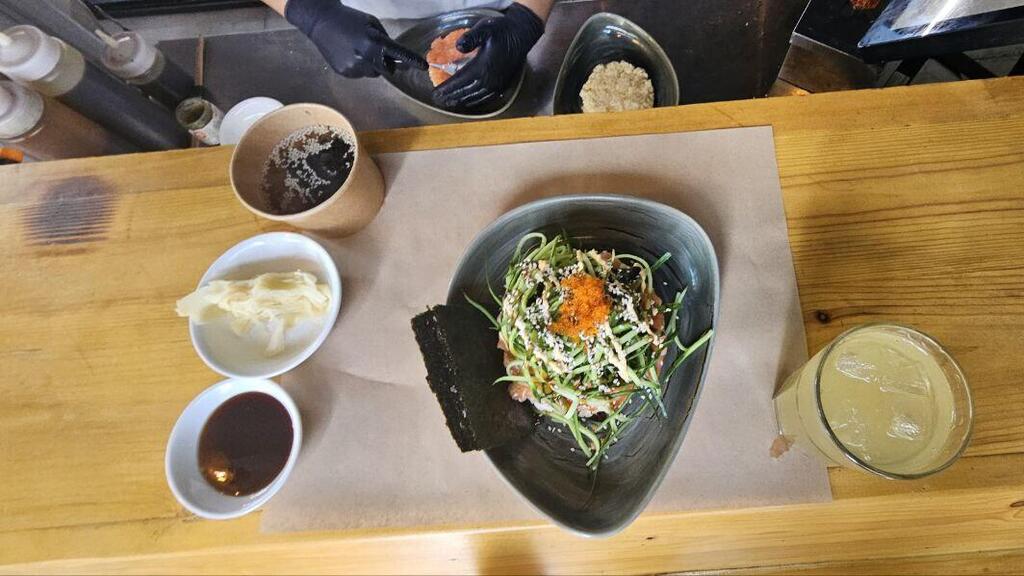Getting your Trinity Audio player ready...
I had never experienced anything like the strange sensation of burning ears caused by the tartare made from kosher "lobster" and "crab" I tasted for the first time in my life. Unlike eating other spicy foods, there was almost no burning in my throat. So, is this what lobster tastes like? Almost—because what I ate was a kosher version.
Chef Dylan David looked thrilled with the result. "Such a success," he said with a thick, rounded French accent and a huge smile. "I worked for a year and a half to achieve these flavors, and I can tell you it’s the closest you’ll ever get to the taste of real lobster and crab."
My encounter with Chef David’s food happened completely by chance—not because of a religious craving to try shellfish. His restaurant, Otoro, located just a few minutes' walk from the Bursa business center and Tel Aviv Central train station in Ramat Gan, became my destination after a sudden wave of hunger. Nothing in the minimalist design or the bar surrounding the open kitchen hinted at the ritualistic, flavor-packed experience that awaited.
David, 32, a father of two (soon to be three), was born in Cannes, grew up in Los Angeles, and eventually moved to Israel. He trained at a French culinary school and later joined the team of acclaimed chef Assaf Granit, where he learned the art of cooking seafood. "Assaf worked a lot with lobsters and crabs, and I learned a great deal from him," David said. He also gained experience in luxury restaurants across France, Dubai, Portugal and Los Angeles.
Several years ago, he decided to fully embrace kosher dietary laws without giving up his love of authentic, creative cuisine. "When I returned to Israel, I decided not to eat non-kosher food anymore. Until then, I had made up my own rules so I could comfortably taste the food I prepared for restaurant guests," he admitted.
His culinary innovation journey began with a realization: "I told myself it can’t be that I tried and was exposed to all these flavors for nothing. I knew that the kosher fish scene mostly revolved around salmon, tuna, and white fish, and I wanted to bring something new to my fellow kosher-keeping friends."
David is careful not to reveal all the ingredients behind his seafood tartare but shared a little: "It includes sea bream and cod, among other components. It took me a long time to find the right texture and special flavors of lobster and crab. I think I reached about 65% similarity in texture and taste, but since you’re someone who keeps kosher and your palate doesn’t recognize those original flavors, for you it’s a completely new experience. That’s why I’m very happy with the result."
Get the Ynetnews app on your smartphone: Google Play: https://bit.ly/4eJ37pE | Apple App Store: https://bit.ly/3ZL7iNv
The name Otoro refers to the most prized and delicious part of the tuna fish. David calls the cuisine at his fast-casual restaurant "authentic Japanese," and he employs two professional chefs—brought in specially from Japan.
The flagship dish, "Otoro Poke," is a colorful, intricate assembly of flavors and ingredients that demands ceremonial eating, even if you’re on a 15-minute lunch break. Priced at 68 shekels (about $18), the meal starts with a bowl of Japanese soup featuring thick, meaty seaweed, sipped directly from the bowl. After a brief nod to David or one of the other chefs behind the counter, the poke arrives: seasoned Japanese rice topped with a generous heap of fresh fish tartare, cucumber "spaghetti" marinated in ponzu sauce and roasted sesame, and a beautiful crown of kosher caviar. A pile of crispy nori sheets rests alongside.
"You take the seaweed, wrap the rice, fish, and cucumbers in it, dip it in the sauces, and take a bite—you’ll get it immediately," advised a fellow diner sitting next to me at the bar.
The sauces are just as impressive: white truffle ponzu, teriyaki, lemon caviar wasabi, and, of course, soy sauce—all homemade. Thankfully, the chilled tea served with the meal helped soothe the fiery spice of the wasabi and "lobster" tartare, and refills were included.





